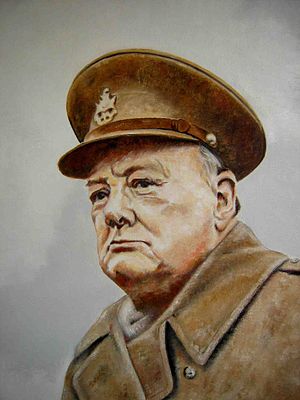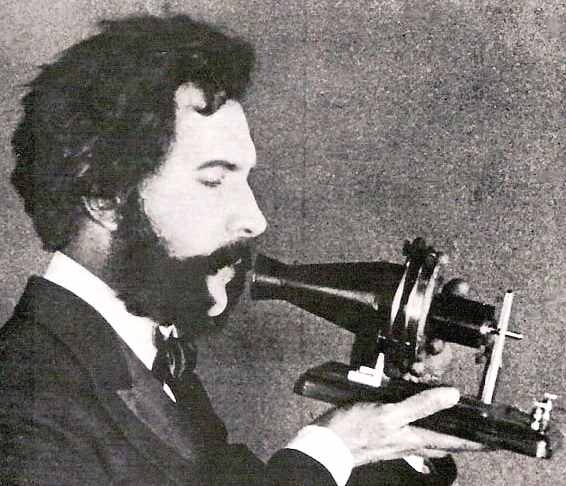
The American story has captivated the world.
In 1831, Alexis deTocqueville, a French politician and historian, traveled to America in order to study our nation's prison system. But once here, he became so intrigued with our curious new nation that he decided to stay for a while. He traveled as far west as the wilds of Michigan, and as far south as New Orleans. He spent most of his time, however, in Boston, New York, and Philadelphia. Throughout his stay, he entertained and interviewed bankers, lawyers, and settlers, and even met with President Andrew Jackson and former President John Quincy Adams. In 1835, deTocqueville published his storied work,
Democracy in America. Among countless memorable quotes, deTocqueville penned these thoughts:
"I confess that in America I saw more than America; I sought the image of democracy itself, with its inclinations, its character, its prejudices, and its passions, in order to learn what we have to fear or hope from its progress."Another Frenchman, Frédéric Auguste Bartholdi spearheaded the vision for France to give the gift of the Statue of Liberty to the United States in honor of our Centennial (1876). He even traveled to the U.S. and personally selected Liberty's resting place in the New York Harbor. Bartholdi's dream finally became reality ten years after he had planned (1886), but to this day, Liberty's torch still welcomes all who pass by her.
Six years after Bartholdi's elegant copper sculpture first graced Liberty Island, Ellis Island, right next door, became the port of entry for millions of immigrants seeking a better life in America. And every one of these hopeful immigrants had a unique, American story.
In 1917, and again in 1941, America reluctantly engaged with a world at war, and twice emerged victorious. Throughout Europe, Americans were loved and honored not only for their supreme sacrifice, but also for their way of life.

In his twilight years, when queried about what the future of British foreign policy should be, Winston Churchill is reported to have responded with these words:
"Stay close to America." Churchill understood that Britain's offspring had become the world's leader.
The nations of this world once loved America. And they loved her for the right reasons. They loved our nation because here, a person could be free, could make of themselves whatever they wanted to be, and with hard work and tenacity, a person could carve out a rich future for themselves and their progeny.
Yes, ours has truly been an exceptional story. From our inauspicious beginnings at the first permanent English settlement at Jamestown in 1607, right up to this moment, America can be seen on the move, growing, changing, leading the way.
Though Jamestown rightfully boasts our nation's "first English settlement," the Pilgrims and the Puritans deserve much of the credit for laying the foundation stones of our unique, American culture. Their story actually began in the early 1600's, in England. The Pilgrims, also known as Separatists, broke away from the Church of England, pointing to the body's corruption and its falling away from the pure doctrines of the Bible. The Puritans, though essentially of the same mind as the Separatists, chose to remain with the Church of England and fight the corruption from within.
Both groups sent parties to North American shores, and both embedded themselves and their way of life into American soil. From those early seeds, and other seeds planted along the Atlantic coast, grew our self-governing, liberty-loving nation.
So plentiful were the Christians in our land, that America was dubbed "the Protestant Empire." Across the landscape we find numerous towns sporting Biblical names: Salem, Mt. Carmel, Zion, Bethlehem, Nazareth, Berea. Even my home town's name, Manassas, comes from one of Israel's wayward kings, Manasseh. And the state just north of mine is named for the woman who gave birth to the Savior—Maryland.
Sadly, African slaves too became a part of American life, and other seeds, the seeds of war, sprouted and grew. Two hundred and forty-one years after the first Pilgrim stepped off of the Mayflower, America divided, split North and South over the issues of states' rights and slavery. The American story had been interrupted by a bloody, sectional war.
When faced with challenges, our nation has always supplied just the right "everyday American" to enter the story and make the difference. Our War for Independence could not have been won without the citizen soldier. Nor could our victories in two world wars have come without the American Doughboy and GI Joe. In our land, the best solutions to our nation's problems have always come through the private entrepreneur, the inventor, the American self-starter.
American slavery ended with our Civil War. But well before Confederate cannons lobbed their fiery projectiles across Charleston Harbor and into the defenses of Fort Sumter in April of 1861, Americans had stood up and spoke out about the evils of slavery. Frederick Douglass, an escaped slave who entered the American story, traveled throughout the Northern states lobbying for abolition. Harriet Beecher Stowe, author of
Uncle Tom's Cabin, entered the American story by telling an American story. Upon meeting Stowe, President Lincoln remarked, "So you're the little lady who wrote the book that started this big war."

Does the name Molly Pitcher ring any bells? No, Molly was not a baseball player in the Major Leagues. The wife of a soldier serving in George Washington's Continental Army, Molly Pitcher (Mary Hays McCauly) brought pitcher after pitcher of cool water to parched soldiers during the battle of Monmouth in 1778. When her cannoneer husband fell wounded, Molly entered the story, plucked the cannon's rammer staff from her husband's hands, and manned his station. Later, General Washington awarded her the rank of a non-commissioned officer in his army.
When called up for duty in WWI, Alvin York filed for the status of conscientious objector. The Army rejected his application and York went on to become a war hero by single-handedly killing twenty-five Germans and capturing another 132. Everyday American York entered the American story, helped defeat Germany, and received the Medal of Honor for his bravery.

Big governments can never accomplish things as effectively and efficiently as individual people. In our land, it has always been the individual entering the story and finding a way to do things more efficiently, more economically, or to somehow improve a process. Do the names Edison, Bell, Westinghouse, or Morse mean anything to you? How about Goodyear, or Carver, or two brothers named Wright? Each of these people entered the American story and made significant contributions. Our national leaders played no role in their achievements.
Thomas Jefferson entered the American story and penned the Declaration of Independence. James Madison entered the American story and penned most of our nation's Constitution. Abraham Lincoln entered the American story and preserved the Union during a time of great national crisis. Franklin Roosevelt entered the American story and guided us through a Great Depression and a terrible war fought on three continents.
Today we have a number of courageous and outspoken people in America. But the "everyday American" seems to have surrendered. Have we been "bought off" by our material wealth? Do we no longer care to preserve for our children and grandchildren, the freedoms and blessings we have come to take for granted? Have we become a nation of watchers and listeners, just a dumbstruck audience for the clowns in Washington and Hollywood?
Just yesterday while perusing a
popular local political blog, I stumbled across these words of defeat: "America is over. Anarchy is coming. Every man for himself. Prepare."
Yes, many of us have grown tired of the politically correct, multicultural, pluralistic direction our nation has taken these last forty years. It wears on the soul.
But we who love America, the America of our grandparents and their grandparents, and want to see that America restored, must make a decision.
Will we be led? Or will we lead? Will we let others ultimately determine our course for us? Or will we ourselves enter the American story and lead her back to that good and righteous nation she used to be?
When our federal government failed to do its job and enforce our southern border against illegals, an everyday American named Chris Simcox, and others like him, entered the American story and launched the
Minuteman Civil Defense Corps. Although not empowered to actually make arrests, they do their best to support our understaffed Border Patrol Agency to apprehend people crossing our border illegally.
I have spoken with a number of my friends, and Christian ones too, who appear to have given up, thrown up their hands and said, "It is too late."
Well, it is not.
I say that if God has not yet wiped America off the map—and who knows better than He that we deserve to be judged, with our government sanctioned, mass murdering of the unborn (forty-three million and counting), our sexual appetites, our concupiscent ways, our love of things material, our rejection of Him—He must still entertain a hope that more of us will awaken from our slumber, arise, repent of our wayward lives, call on Him for help, put on our battle armor, and enter the fight.
A remnant of fighters remains in the land. And sometimes a remnant is sufficient.
But how about you? Are you a part of the remnant? If not, will you become one? Will you pick up the cannon rammer, enter the American story, and join the fight?




